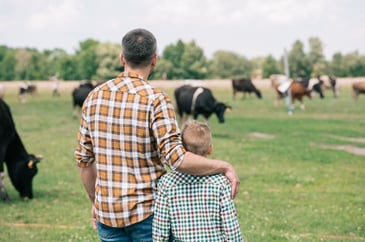Speaking at Future Countryside on Tuesday 6...
Thank you very much Nick and I really appreciate that warm welcome. It is true I have come from...
Read moreIf you look carefully across the rolling green hills of the British countryside, the ancient storykeepers of this land are quietly whispering their secrets to you and me. They speak of arid deserts with shifting sand dunes, tranquil tropical seas teeming with billions of plankton and crashing continents that gave birth to mountains. From the creamy coloured sandstones that give Chatsworth its elegance to the white cliffs of Dover, rocks give the countryside context, meaning and beauty. Their magical stories embedded in scientific thought bring us a sense of awe and wonder but they are just one part of a narrative told about how our world came to be. Intertwined with this knowledge is that of the human experience and for diverse communities across the Britain, the countryside holds a myriad of meanings. For some it is a painful reminder of a homeland lost through (forced or voluntary) migration and for others it is a joyful place where spirit and faith unite in the animacy of nature.
In the Western world, our societal relationship to nature is based on a model of detachment which allows us to observe, extract and exploit what we need to further our own cause. In particular, rock exists in a dichotomous state where it is either highly sought after due to its economic value or it is not seen or appreciated at all – invisible even in plain sight. Five years on from the DEFRA Protected Landscapes Review, are diverse communities being treated in a similar way? For too long, there has been a focus on a deficit model that defines people from diverse backgrounds as hopeless, deprived and lacking in resource. Black and Asian communities are told that they are ‘disconnected’ from nature whilst disabled people are still viewed through impairments that need to be ‘fixed’. This framing then justifies power and agency to continue to reside within organisations that are not reflective of the people they wish to engage. Good intentions often lead to programmes which are created to and for the community rather than with or by them, leading to tokenism, disempowerment and harm.
Relinquishing power and supporting nature to define its recovery (such as rewilding) doesn’t feel like a radical idea these days. So why does trusting and giving agency to diverse communities to engage with the countryside on their own terms feel uncomfortable? If we can advocate for stopping to listen to beautiful birdsong, then surely we can apply these principles to our work with diverse communities. Taking time to listen and learn from the stories, wisdom and resilience of people from the global majority, disabled people and those living in social deprivation can bring new perspectives on how we can work together to diversify access to nature. But to achieve this requires organisations to embody empathy, humility and above all the courage to let go of control. Only through doing this will we be able to move into a true space of equity where the richness of the landscape is enhanced by the diverse stories of people that walk within it.
Dr Anjana Khatwa
Earth Scientist, EDI Consultant and author of The Whispers of Rock: Stories from the Earth (Released 4th September 2025, The Bridge Street Press, Hachette)
Articles and news

Thank you very much Nick and I really appreciate that warm welcome. It is true I have come from...
Read more
Nick Butler, vice president of the Fabian Society and steering committee member of Future...
Read more
Farmers better champions of countryside than eco-activists and politicians Social media including...
Read more